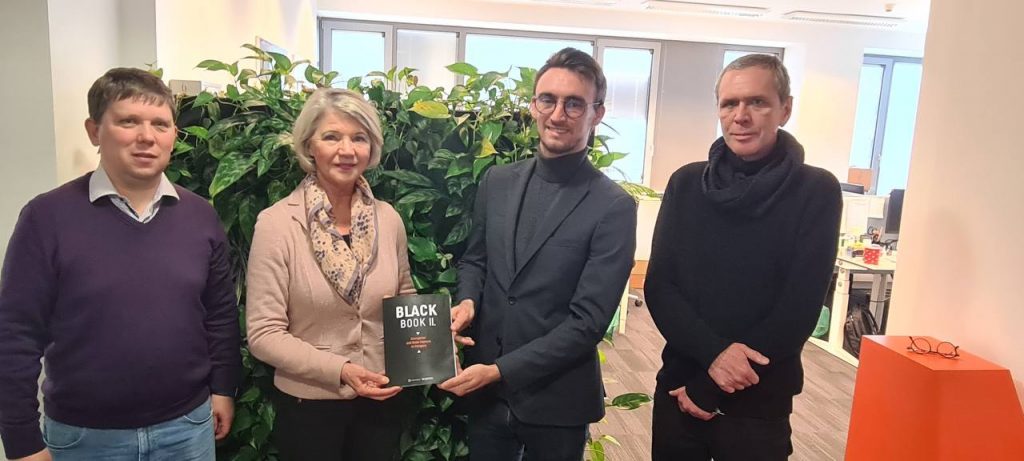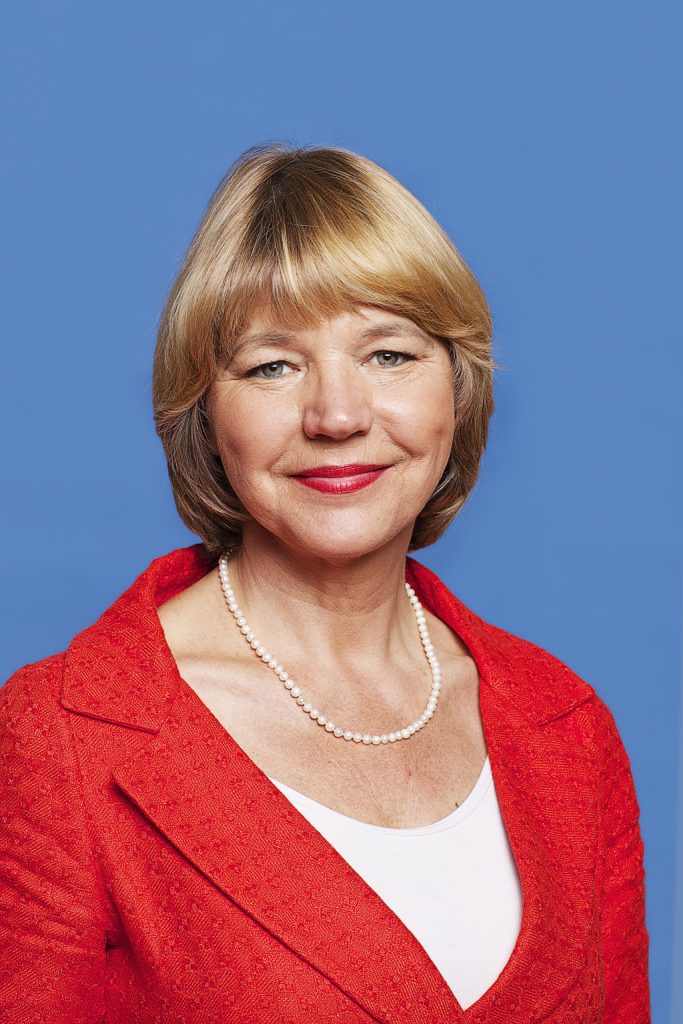CEA Talks host Zoltán Kész interviews the ambassador of the Netherlands to Hungary, Désirée Bonis. The topics include the two countries’ business, cultural and historical connections, and some politics. Ms Bonis talks about the NATO membership of Sweden and Finland and how she imagines the war ending. From the EU point of view, corruption is a big problem in Hungary, and populism is threatening democracy worldwide. But after all, the EU is still a unique society of liberty and freedom, which we should all be proud of.
In the past few years, business relations between Hungary and the Netherlands have flourished. How is the future seen after COVID-19 and the war in Ukraine?
Business relations between the Netherlands and Hungary are already very intense. The Netherlands is in the top 10 investors in Hungary. The trade value of import and export is about 10 billion euros and there is 500+ Dutch companies are already present in Hungary. That’s impressive. The Netherlands would like to further increase the commercial relations between the two countries. It would be by prioritizing certain areas where many promising prospects are seen to grow business. For example, last year, the Netherlands invested in sustainable mobility and smart logistics, for example, biking infrastructure. It is also helping with traffic problems and greening the city.
Also, the Netherlands has a mission on circular economy. In the Netherlands, 26% of everything is recycled. In Hungary, this number is only 6%.
Precision agriculture is a new concept developed by Wageningen University, which makes farming more sustainable. One of the Netherlands mission is to involve Hungarian farmers in the procedure.
The Netherlands is strong in hospital management and digitalization of medical care. Another business mission of March 2023 is to help Hungarians in those aspects.
Ms Bonis has been here since last year. She also talks about the cultural background of the two countries.
The two countries were already established in the 17th century. Protestant communities were in touch. Dutch people saved some of the Hungarian priests from the hands of the pope. After World War I more than 30.000 Hungarian children who went to the Netherlands by train were welcomed. In 1956, thousands of refugees came to the Netherlands.
As for culture, many Dutch productions were available in Hungary. For example, the Scapino ballet, an exhibition of Hieronymus Bosch (medieval painter) at the museum of fine arts, orchestra in the MÜPA, and contemporary photography in Budapest photographed by a Dutch photographer in the 80s. The Netherlands also hopes to participate in Veszprém EU cultural capital, and become a guest country at the Budapest book festival in September 2023.
About NATO membership of Sweden and Finland
(About Hungary voting against Sweden’s and Finland’s NATO Membership) It is a problem, and it’s sad. We do need Sweden and Finland on board. It is essential because of the active aggression of Russia. Everyone agreed on this question except Hungary. There is little understanding of why.
Sanctions are meant to cripple Russian aggression. Making it less possible for Russia to keep Ukraine occupied. Yet the Hungarian government portrays the sanctions on street posters as a bomb against Hungary. Why? Hungary already got an EU exemption for its energy needs. There is an understanding for the difficult position of Hungary. But it is also difficult to understand why it isn’t happy with the sanctions that are meant to stop the war.
Hungarian government refused to approve an aid loan to Ukraine of 18 billion euros. The advantage of having a collective loan is that if the EU is borrowing the loan, it has a cheaper interest rate. Hungary was the only one against this joint aid. The Hungarian government is isolating itself. There is little understanding in Europe of this position.

About the road to peace
The road to peace starts with the total withdrawal of Russian troops from Ukraine soil. This is an illegal act of warfare; people are suffering massively. There are two ways out of this situation—either economic or military defeat of Russia. Back in the ’80s, when President Reagan started the so-called Star Wars project, it forced Russia to its knees. It’s an example, that these types of sanctions do work. On February 24, the world witnessed a huge mistake. Putin should realize that Russia isn’t the czarist empire anymore, and neither does the Soviet Union exist any longer. The Russian economy is nothing more than the GDP of the Benelux countries. The EU respect Russia as a country and, of course its people, but Putin is misleading them. There are so many victims on both sides. Critical infrastructure is being destroyed. It is a terrible situation created by one man.
About Corruption
At the beginning of the year, Civitas Institute cooperated with Transparency International on the so-called Black Book mentioned in the European Commission’s report about Hungary. On Transparency International’s score this year, Hungary placed very low. Out of 27, it seems to be by far the most corrupt country.
The corruption in Hungary worries the average Dutch taxpayer. It is not customary in an EU country to see so much corruption. Dutch people worry about how their money is being spent, but also about Hungarian people who lose out because all types of public funds is disappearing into the wrong pockets. EU established a rule of law conditionality mechanism to prevent situations like this from worsening and it has been invoked for the first time against Hungary. A significant part of the EU funding that is due to reach Budapest will most probably be suspended until the Hungarian government proves that it is complying with a normal standard to fight corruption. The EU needs to guarantee that its funds won’t be misused.
Populism and corruption go hand in hand. What are the risks of populism in the EU in general?
Populism worldwide is an inherent threat to democracy. We have seen it in nazi Germany, fascist Italy, and communist Russia. Populist leaders do not serve their people but mislead them and do not educate them but rather exploit them. This is the danger.
About the changing global landscape
Ms Bonis sees Europe as a paradise of rights and freedom. Many countries from around the world aspire to these. Many people would like to live in a democracy where there is liberty. We should cherish these values of rights and freedom and appreciate them for what they are. Militarily speaking, the USA is still our greatest ally. We are together in NATO for the right reasons. In terms of economy, the EU is still the economic powerhouse of the world. It has a bigger economy than China and also the USA. As European citizens, we should be very proud of being a member of the EU.
Cover Photo Credit: Civitas

Désirée Bonis is a former Dutch politician and diplomat. As a member of the Labour Party (Partij van de Arbeid) she was an MP from 20 September 2012 until 13 June 2013. Previously she worked as director of the department Sub-Saharan Africa at the Dutch Ministry of Foreign Affairs. She also performed several diplomatic duties; so she was ambassador to Syria from 2006 to 2010. Between 2013 and 2016 and she was the national coordinator for international positions at the Ministry of Foreign Affairs. Bonis was Dutch ambassador to Morocco from 2016 to 2020. In December 2021 she was appointed as the ambassador of the Netherlands to Hungary. Bonis studied history. She is married, has two daughters
Photo credit: Wikipedia



